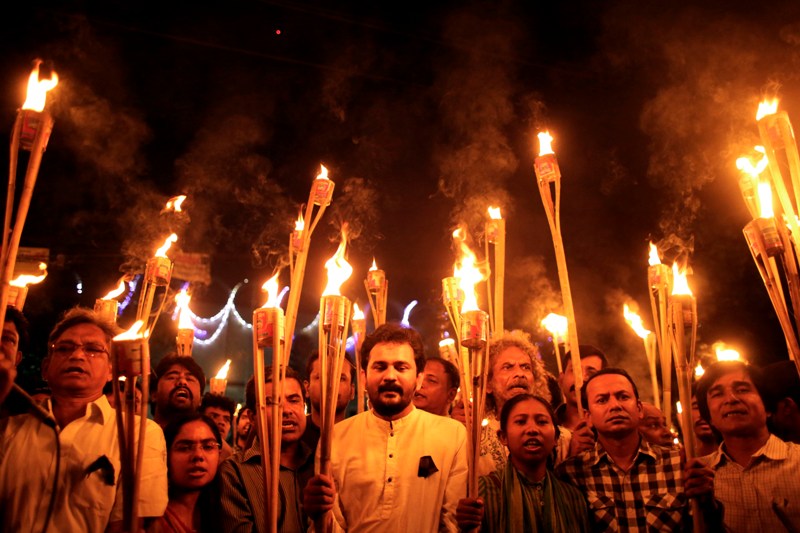The Bangladeshi government must take swift action to protect all individuals exercising their freedom of expression in the country, the International Press Institute (IPI) said today, following last week’s murder of book publisher Faisar Arefin Dipan and attacks on three others.
Dipan was found hacked to death on Saturday in his office shortly after news spread of the attempted murders on the same day of publisher Ahmedur Rashid Chowdhury Tutul and bloggers Ranadipam Basu and Tareq Rahim. The latter three, who were attacked with machetes, were brought by police to the hospital in critical condition.
Both Tutul and Dipan had published the secular writings of American-Bangladeshi blogger Avijit Roy, who was murdered with a machete while leaving a book fair in February 2015. Roy, who founded Mukto-Mona, a Bengali-language Internet platform for humanists, secularists and freethinkers, was one of 84 writers whose name appeared on a list of so-called ‘atheist bloggers’ drawn up by Islamic extremist groups in 2013.
Similar lists have reappeared since. The Ansarullah Bangla Team (ABT), which is believed to be responsible for a recent series of attacks on secular writers and bloggers, published a new ‘hit list’ in September 2015 targeting individuals both inside and outside Bangladesh. Three members of ABT, including the group’s acting head, were arrested in September on suspicion of involvement in the murders of Roy and fellow blogger Ananta Bijoy Das. In June the group also issued death threats against 24 people, including several journalists.
“We are horrified by the violence being perpetrated in Bangladesh against persons exercising their freedom of expression,” IPI Director of Press Freedom Programmes Scott Griffen said today. “We are also disturbed that more was not done to protect these victims. The Bangladeshi authorities need to not only swiftly and thoroughly investigate these most recent attacks, but also offer effective security protection to any persons who may be targets, including members of the news media, given the clear threat.”
A group called Ansar al-Islam, a Bangladeshi division of Al Qaeda in the Indian Subcontinent (AQIS), claimed responsibility for Saturday’s attacks. In a Bengali statement posted to Twitter, the group wrote of Dipan and Tutul: “These two atheist-apostates have published books that have attacked the honour of the Prophet (Mohammed) and mocked Islam.”
Saturday’s brutal attacks are only the most recent of their kind. This year alone, four bloggers whose names appeared on the October 2013 ‘hit list’ were murdered in similar fashion. A month after Roy’s murder, Washiqur Rahman was killed on a busy street in Dhaka by two men armed with meat cleavers. The suspects who were arrested told the police they had attacked him for his anti-Islamic writing. In May 2015, Bijoy Das, who wrote for Mukto-Mona, was hacked to death by four masked men in broad daylight near his home. Niloy Chakrabarti, a secularist blogger who wrote under the pen name Niloy Neel and also contributed to Mukto-Mona, was killed in his own home by machete-wielding men in August 2015.
The attacks have had a chilling effect on bloggers, who say they have become hesitant to write about issues that may draw attention from Islamic militant groups.
One blogger who has begun to censor his writing told the BBC recently that there was not “an inch of safe space in Bangladesh”. And with the killing of Neel, he added: “How can I think my house is safe?”
